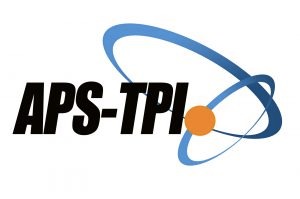AI-GENERATED CONTENT: GUIDELINES, HIGHER-ORDER THINKING SKILLS, AND COPYRIGHTS
Keywords:
Artificial Intelligence (AI), Copyrights, Critical Thinking, Higher-Order Thinking.Abstract
Artificial Intelligence (AI) technology has progressed in leaps and bounds and has taken the world by storm with its seemingly endless potential applications that can have both positive and negative effects on society at large. Regulating a powerful and ever-evolving tool, however, is a slippery slope with no consensus on how laws are applied to specific AI applications and how these will work in diverse contexts (Chauhan, 2022). The implications of regulations for generative AI are about as vast as its potential, and the lack of a comprehensive framework all the more highlights the difficulty in applying policies to varying contexts. It is essential, therefore, for higher education institutions to form a task force of faculty, faculty developers, and instructional designers to develop up-to-date guidelines and best practices through a Strength, Weaknesses, Opportunities, and Threats (SWOT) analysis and warrant regulations that are aligned with their contexts while promoting higher order thinking and an understanding of copyright principles. Strategies and collaborations can be developed, thereby providing a range of perspectives on effective and responsible use of AI technology in education, fostering cooperation and educational opportunities, and ensuring ethical use and awareness of data privacy for educators and users alike.
References
Analla, T. & Jonnavithula, A. (2023, March 6). Zarya of the Dawn: How AI is changing the landscape of copyright protection. JOLT Digest. https://jolt.law.harvard.edu/digest/zarya-of-the-dawn-how-ai-is-changing-the-landscape-of-copyright-protection
Farrokhnia, M., Banihashem, S. K., Noroozi, O., & Wals, A. (2023). A SWOT analysis of ChatGPT: Implications for educational practice and research. Innovations in Education and Teaching International. Advance online publication.
Future of Life Institute. (n.d.). Cause area: Artificial intelligence. Retrieved June 6, 2023, from https://futureoflife.org/cause-area/artificial-intelligence/
Glaser, N. (2023). Exploring the potential of ChatGPT as an educational technology: An emerging technology report. Technology, Knowledge and Learning. Advance online publication. https://doi.org/10.1007/s10758-023-09684-4
Manheim, K. M., Kaplan, L. (2019). Artificial intelligence: Risks to privacy and democracy. Yale Journal of Law and Technology, 21(106), Loyola Law School, Los Angeles Legal Studies Research Paper No. 2018-37. https://ssrn.com/abstract=3273016
Meltzer, J. P. (2023, May 22). The US government should regulate AI if it wants to lead on international AI Governance. Brookings. https://www.brookings.edu/blog/up-front/2023/05/22/the-us-government-should-regulate-ai/
Metz, C. (2023, April 4). What makes A.I. chatbots go wrong? The New York Times. https://www.nytimes.com/2023/03/29/technology/ai-chatbots-hallucinations.html
Office of Educational Technology. (2023). Artificial intelligence and future of teaching and learning: Insights and recommendations. U.S. Department of Education. https://tech.ed.gov/files/2023/05/ai-future-of-teaching-and-learning-report.pdf
Reed, C. (2018). How should we regulate Artificial Intelligence? Philosophical Transactions of the Royal Society A: Mathematical, Physical & Engineering Sciences, 376(2128), Article 20170360. https://doi.org/10.1098/rsta.2017.0360
Stojanov, A. (2023). Learning with ChatGPT 3.5 as a more knowledgeable other: An autoethnographic study. International Journal of Educational Technology in Higher Education, 20, Art. 35.
UNESCO. (n.d.). Policy resources. UNESCO. Retrieved June 6, 2023, from https://mgiep.unesco.org/article/policy-resources
UNESCO. (2022). Recommendation on the ethics of Artificial Intelligence. UNESCO Digital Library. https://unesdoc.unesco.org/ark:/48223/pf0000381137
UNESCO. (2023). UNESCO survey: Less than 10% of schools and universities have formal guidance on AI. UNESCO. https://www.unesco.org/en/articles/unesco-survey-less-10-schools-and-universities-have-formal-guidance-ai?hub=32618
Yudhoyono, S. B. & Syamsudin, A. (2014). Law of the Republic of Indonesia Number 28 of 2014 on Copyrights. Retrieved August 29, 2023 from https://www.wipo.int/wipolex/en/text/578071
Downloads
Published
How to Cite
Issue
Section
 Abstract views: 839
,
Abstract views: 839
, PDF Downloads: 518
PDF Downloads: 518






